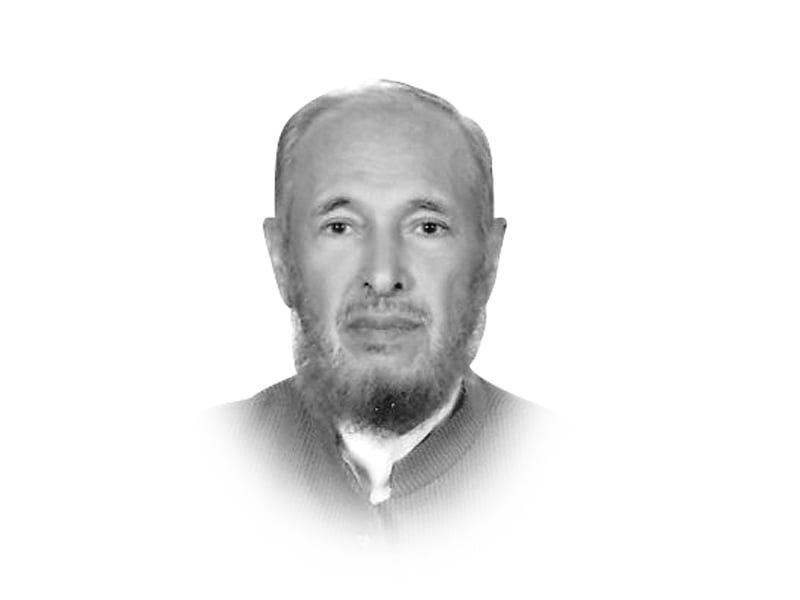
On 13th April a massive crowd turned up to hear what Imran Khan had to say in his first public appearance since he was ousted as Prime Minister through a no-confidence vote. In his speech, the PTI leader asserted that “those who predicted that I would have no place to hide after I am no longer in power should come and see this demonstration of support and love for their leader”. The 10th of April witnessed people in several big cities come out to express shock and dismay at the removal of Khan’s government. Protest rallies were also held in a few foreign countries with large Pakistani diaspora in attendance.
This is the age of populism and populist politicians are sweeping across the world from Brazil to India and Pakistan. Anyone who has the capability to market his theories to the audience carries the day. No matter how incendiary is the language or how offensive are the abuses hurled against opponents, people easily get carried away unmindful of the consequences. Fiery rhetoric is what matters most. Populist leaders are mostly long on symbolism, short on substance. That does not matter to rank and file masses, including those in Pakistan.
Imran Khan had little to show for his achievements in the nearly four years that he ruled the country. From day one till he was removed, there was an endless diatribe against his opponents. Vendetta was the hall mark of his administration. There was no time for focusing on the many serious challenges the country confronts. As if it was his sole responsibility to dig at his political opponents there was no break or respite in his unending onslaught against rivals. Humiliating a few opponents was his government’s sole preoccupation which was perhaps his greatest mistake that ultimately cost him his government.
Issues such as the devastating effects of climate change, the looming water scarcity, pollution, unemployment, growing poverty, falling educational standards were conveniently ignored because there was no time for “mundane” problems. Cost of living soared partly because of the pandemic but also because the issue did not receive the attention it deserves. Loans worth Rs20,000 billion were received during the PTI government’s tenure — a record for a country that was already heavily in debt. Millions lost their jobs; thousands of factories closed down — thus life became difficult for millions of people living below poverty line. Important sectors, like agriculture, were ignored. Pakistan began to import edible oil, rice, wheat, etc, incurring a loss of precious foreign exchange. These issues did not seem to worry Khan’s government because time and resources had to be invested in a mad chase to reveal the hidden wealth of a few families. Also, sectors like education, industry, urban management, drinking water, population explosion were of no concern to the government. Such was the dismal collapse of educational institutions and the quality of education that in the last CSS examination, only two per cent candidates qualified the written test. Any government anywhere in the world would have been alarmed at such a dismal state of affairs.
The situation was no better on the foreign policy front. On the issue of convening the summit of the OIC heads of states, an unnecessary chasm was created in relations with Saudi Arabia. It was during the PTI’s reign that India had the courage to dismantle the identity of Kashmir and make it a union territory, thus closing doors on any breakthrough in the near future.
And last but not least was this sordid drama of a ‘foreign conspiracy’ to topple Imran Khan’s government. A routine discussion by an American official with Pakistan’s ambassador in Washington was touted as evidence of the US involvement in destabilising the PTI government. Nothing could be farther from truth. What danger did Imran Khan pose to the wider US interests in the area? None! And then didn’t the Americans know there are more than one power centres, particularly on key policy issues? And is it not a fact that Pakistan’s relevance to US goals in the area has vastly diminished after the end of the Afghan conflict?
But regardless of the litany of failures it must be clearly understood that Imran Khan’s popularity and his appeal to the masses has not been dented. His charisma continues to charm and attract vast audiences. His ability to stir emotions and incite masses has not vanished. If anything it has acquired more intensity. To his advantage there is no leader in the current ruling elite who could match Imran Khan’s rhetoric. His rivals and opponents would suffer from this disability in the coming electoral contest. If the outpouring of sympathy and love and affection for Imran Khan is any guide, it would seem he would return to power soon. Leaders of the current government would need to reflect on this and work out appropriate responses. Countering Imran Khan’s outbursts, which appeal to millions, would not be easy.
Published in The Express Tribune, April 21st, 2022.
Like Opinion & Editorial on Facebook, follow @ETOpEd on Twitter to receive all updates on all our daily pieces.




















COMMENTS (1)
Comments are moderated and generally will be posted if they are on-topic and not abusive.
For more information, please see our Comments FAQ